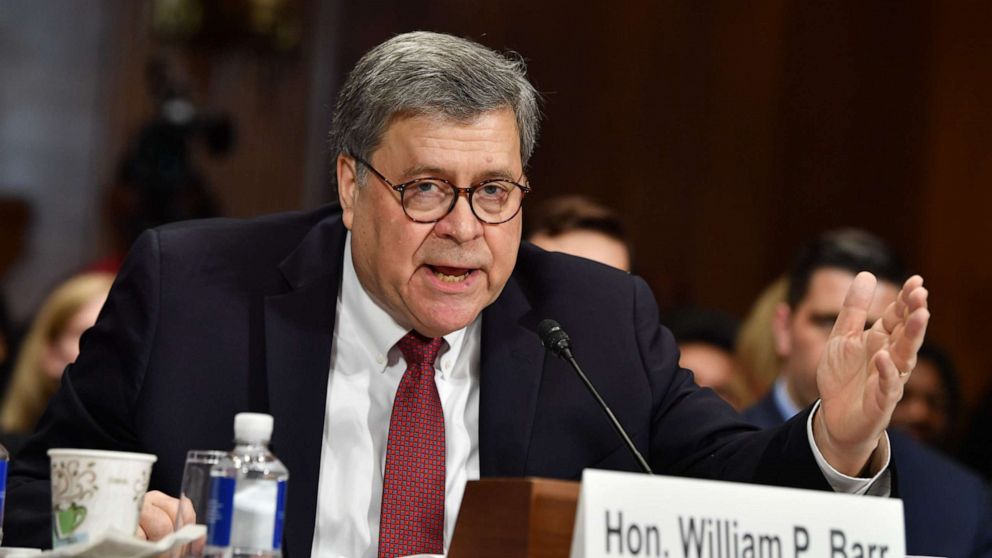Senate Democrats confront AG William Barr in hours-long grilling
Attorney General William Barr faced a grilling from lawmakers on Wednesday over his controversial handling of special counsel Robert Mueller's report as the nation's top law enforcement officer returned to Capitol Hill for the first time since releasing the probe's highly anticipated findings earlier this month.
Anticipation for Barr's testimony reached new heights late Tuesday when several news outlets, including ABC News, reported that Mueller expressed frustration to the attorney general over the public's interpretation of his investigation when Barr issued a four-page letter describing the report's "principal conclusions" within 48 hours of receiving the special counsel's findings.
Here's how the day unfolded:
6:19 p.m.: Nadler on Barr's decision not to appear
The Justice Department on Wednesday informed the House Judiciary Committee that Barr would decline to testify before the panel on Thursday amid disagreements over the hearing's format.
"When push comes to shove, the administration cannot dictate the terms of our hearing and our hearing room," House Judiciary Chairman Jerry Nadler told reporters. He added that his committee is seeking the full unredacted version of special counsel Robert Mueller's report on Russian interference in the 2016 election and that compliance with the committee's request is "not optional."
The committee is planning for a hearing, he added saying "I hope and expect the attorney general will think overnight and be there as well."
The House Judiciary Committee is expected to subpoena Barr for his testimony, according to aides.
6:11 p.m.: Justice Department statement on Barr not appearing before House Judiciary
"Today, the Attorney General testified before the Senate Judiciary Committee for over five hours. The Attorney General also voluntarily released the Special Counsel’s confidential report with minimal redactions to Congress and the public, made an even-less redacted report available to Chairman Nadler and congressional leadership (which they have refused to review), and made himself available to the Committee by volunteering to testify this week. Unfortunately, even after the Attorney General volunteered to testify, Chairman Nadler placed conditions on the House Judiciary Committee hearing that are unprecedented and unnecessary. Congress and the Executive branch are co-equal branches of government, and each have a constitutional obligation to respect and accommodate one another’s legitimate interests. Chairman Nadler’s insistence on having staff question the Attorney General, a Senate-confirmed Cabinet member, is inappropriate. Further, in light of the fact that the majority of the House Judiciary Committee -- including Chairman Nadler -- are themselves attorneys, and the Chairman has the ability and authority to fashion the hearing in a way that allows for efficient and thorough questioning by the Members themselves, the Chairman’s request is also unnecessary. The Attorney General remains happy to engage directly with Members on their questions regarding the report and looks forward to continue working with the Committee on their oversight requests," DOJ spokesperson Kerri Kupec said in a statement.
5:43 p.m.: Source says Barr will not testify Thursday before House panel
The Justice Department on Wednesday informed the House Judiciary Committee that Barr would decline to testify before the panel on Thursday amid disagreements over the hearing's format, according to a committee aide.
3:15 p.m.: Hearing concludes after Barr describes Mueller letter as "a bit snitty"
Before ending about four hours of testimony, the attorney general recounted in detail his discussion with Robert Mueller after the special counsel sent a letter to Barr complaining that he failed to "capture the context, nature, and substance of this Office's work and conclusions."
During what Barr described as a 10-15 minute phone conversation, Barr said he told Mueller: "I said ‘Bob, what's with the letter? Why don't you just pick up the phone and call me if there's an issue?'"
When Democratic Sen. Richard Blumenthal asked for notes from the phone call –- the existence of which was confirmed by Barr -– the attorney general snapped back, "Why should you have them?"
Referring to Mueller's March 27 letter, Barr said, "The letter is a bit snitty and I think it was probably written by one of his staff people."
2:53 p.m.: Barr says he believes Mueller didn't mean for his report to be used as a roadmap for Congress
Contrary to what many congressional Democrats perceived as the special counsel's intention, Barr told Democratic Sen. Patrick Leahy that he does not believe Mueller meant for its report to be used as a roadmap for Congress to consider possible obstruction of justice or as a basis for impeachment proceedings.
"[Mueller] has not said that he conducted the investigation in order to turn it over to Congress, that would be very inappropriate, that is not what the Justice Department does," adding, "I don't think Bob Mueller was suggesting the next step was for him to turn this stuff over to Congress to act upon. That's not why we conduct grand jury investigations," Barr said.
In his report, Mueller did suggest that Congress, as an equal branch of government, has the authority to take the information uprooted by Mueller and either craft laws to prevent future presidents from conducting behavior described in the report, or, as "a drastic and rarely invoked remedy," pursue impeachment.
2:44 p.m.: After grilling from Democratic presidential hopefuls, former GOP presidential candidate Cruz says Democrats 'ain't got nothing'
Sen. Ted Cruz, R-Texas, accused Democrats of focusing on the newly revealed March 27 letter from special counsel Mueller to Barr instead of focusing on the Russian collusion he said they had been "going on and on and on about" for two and a half years."
"I want people to understand just how revealing it is. If this is their whole argument, they ain't got nothing."
Cruz added that Barr has delivered "remarkable transparency" as he has promised to Congress by releasing the full Mueller report.
2:19 p.m.: Democratic hopefuls Booker, Harris take on Barr
Sen. Cory Booker, D-N.J., criticized Barr's "willingness to seem to brush over this and use words like the American people should be grateful with what's in this report -- nobody should be grateful. Concerted efforts for deception, for misleading, inappropriate action after inappropriate action that is clear."
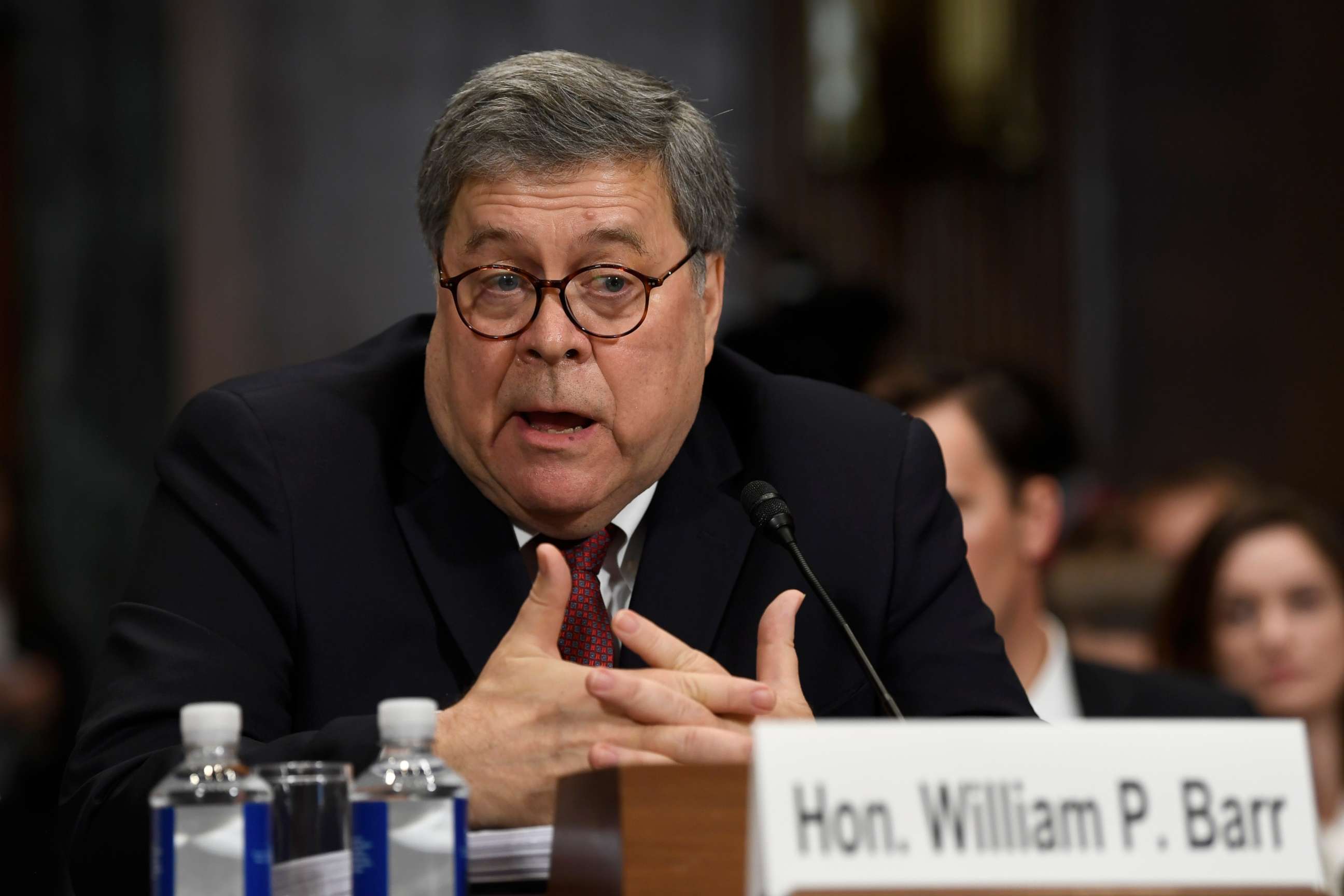
California Democrat Sen. Kamala Harris sparred with Barr over his decision not to find the president committed obstruction of justice. Harris accused Barr of being "biased in this situation" and "having a conflict of interest."
Barr defended himself by pointing out that Rod Rosenstein, the deputy attorney general, also contributed to his decision not to prosecute the president for obstruction.
"I haven't been the only decision maker here now," Barr responded. "Let's take the deputy attorney general Rod Rosenstein, approved by the Senate 94-6 with specific discussion on the floor that he would be responsible for supervising the Russian investigation."
Barr then said neither he nor Rosenstein had reviewed the special counsel's underlying evidence.
"No. We accepted the statements in the report as factual record," Barr told Harris. "We did not go underneath it to see whether or not they were accurate. We accepted it as accurate."
1:56 p.m.: Tempers flare as Democrat Hirono tells Barr: 'You should resign'
Tempers flared for the first time when Hawaii Democrat Sen. Mazie Hirono tore into Barr, accusing him of being "no different from Rudy Giuliani or Kellyanne Conway or any other people who sacrificed their once-decent reputation for the grifter and liar who sits in the Oval Office."
Hirono continued a five-minute monologue before telling Barr "You should resign."
When Barr asked for Hirono to clarify a question, the senator interrupted him, saying, "Please, Mr. Attorney general. Give us some credit for knowing what the hell is going on around here."
GOP chairman Graham interjected, "This line of questioning – listen, you've slandered this man …seven minutes and you slandered this man top to bottom."
"What I sort of want to know is how do we get to this point?" Barr mumbled as Graham called on the next senator.
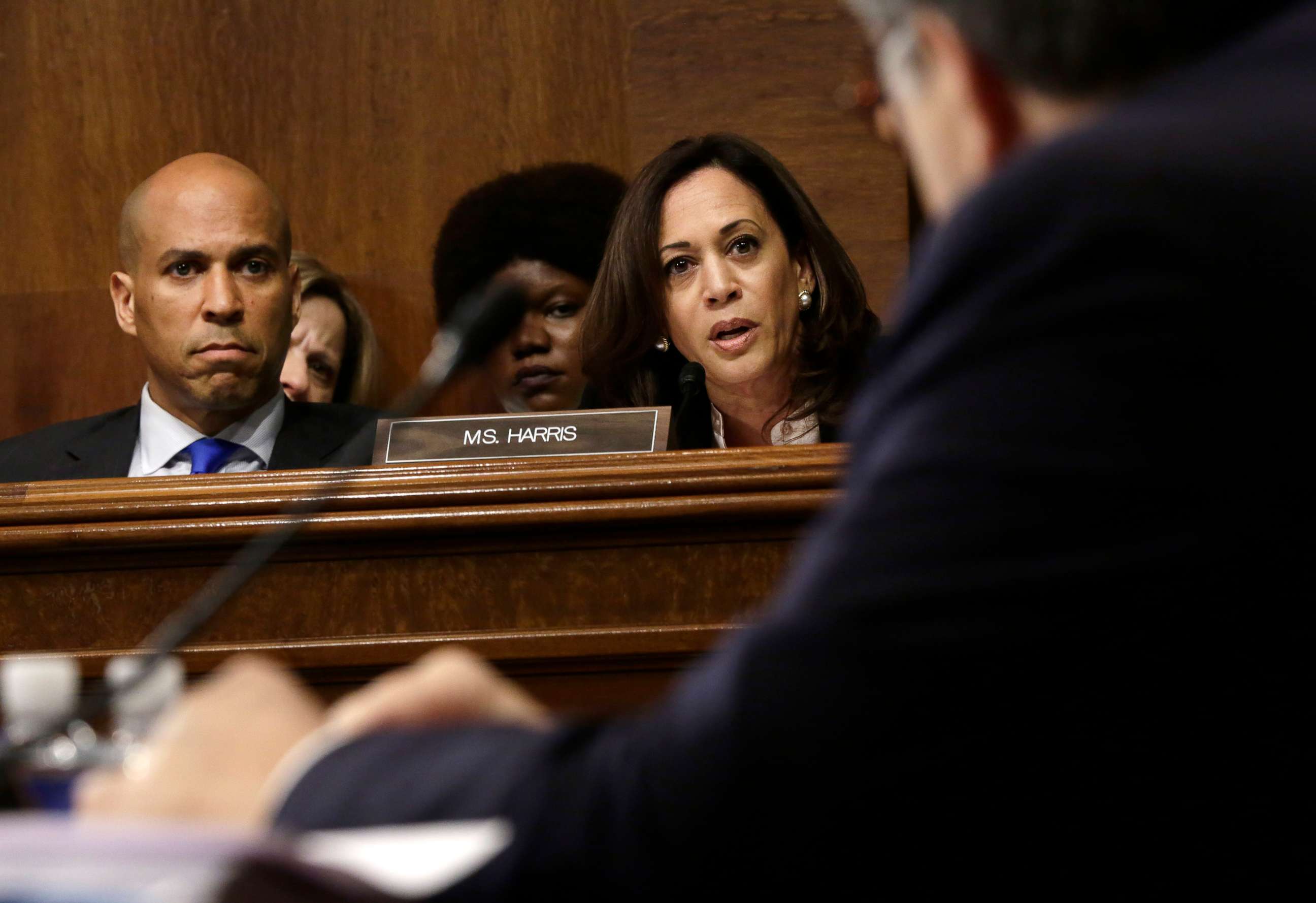
Toward the end of questioning by Sen. Marsha Blackburn, R-Tenn., Barr circled back to his point on "How did we get to this point?"
"How did we get to the point here where the evidence is now that the president was falsely accused of colluding with the Russians and accused of being treasonous and accused of being a Russian agent," Barr said, "and the evidence is now that was without a basis, and two years of his administration have been dominated by the allegations that have now been proven false?"
"And, you know, to listen to some of the rhetoric, you would think that the Mueller report had found the opposite," Barr added.
1:48: Barr: 'We have to stop using the criminal justice system as a political weapon'
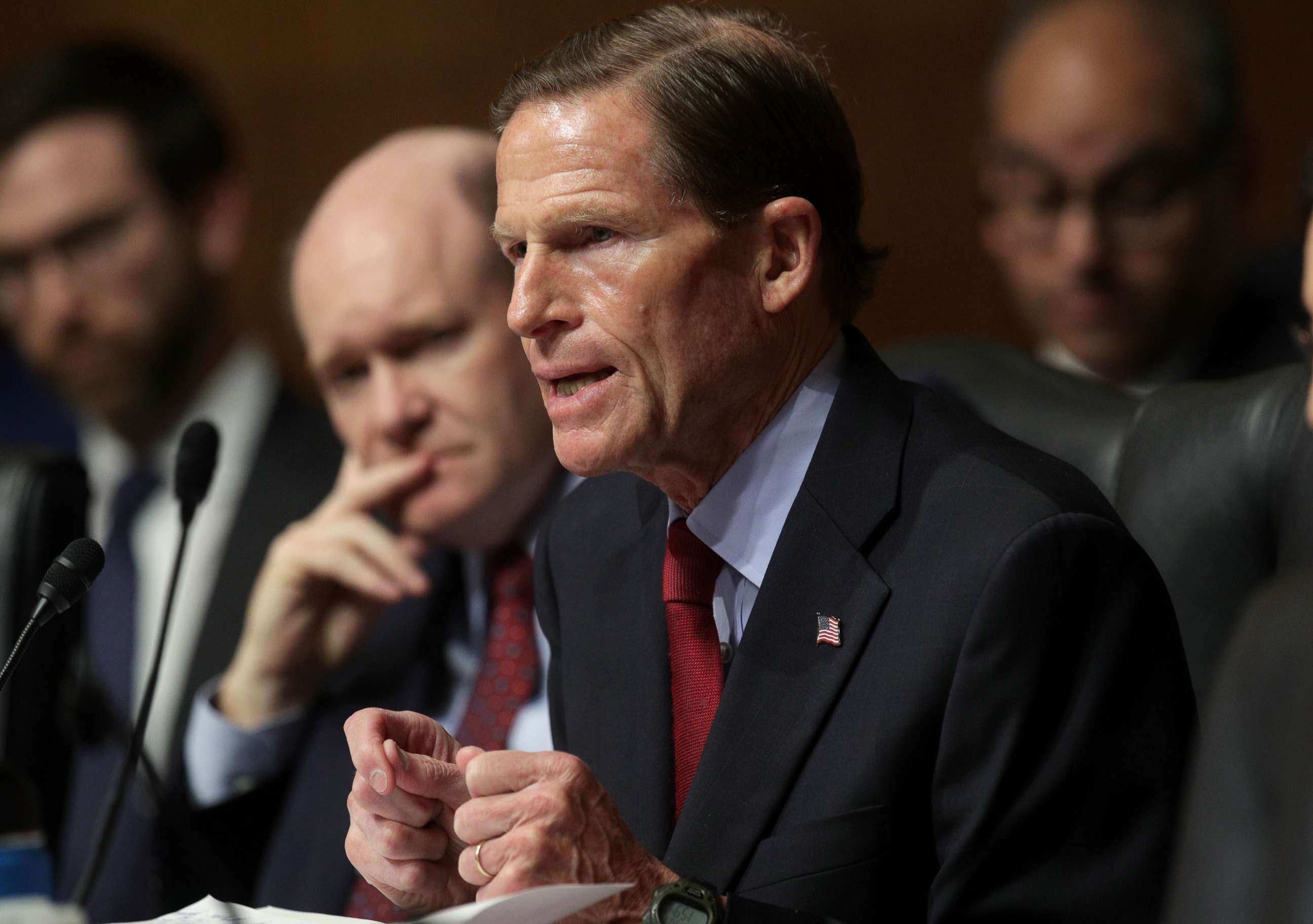
A fiery Sen. Richard Blumenthal, D-Conn., lashed out at the attorney general for his handling of the Mueller report,
"I think history will judge you harshly – and maybe a bit unfairly – because you seem to have been the designated fall guy for this report," Blumenthal said. "I think that your credibility is undermined within the department, in this committee, and with the American people."
Blumenthal then turned his attention to the 14 remaining open cases referred to in the special counsel's report and asked Barr whether he had discussed the matter with the White House.
Barr said he "can say very surely" he did not, adding he would not recuse himself from those probes.
On the eve of Wednesday's hearing, 11 Senate Democrats – including Blumenthal – asked the Justice Department's internal watchdog to investigate several matters related to Barr's impartiality in handling the special counsel's probe.
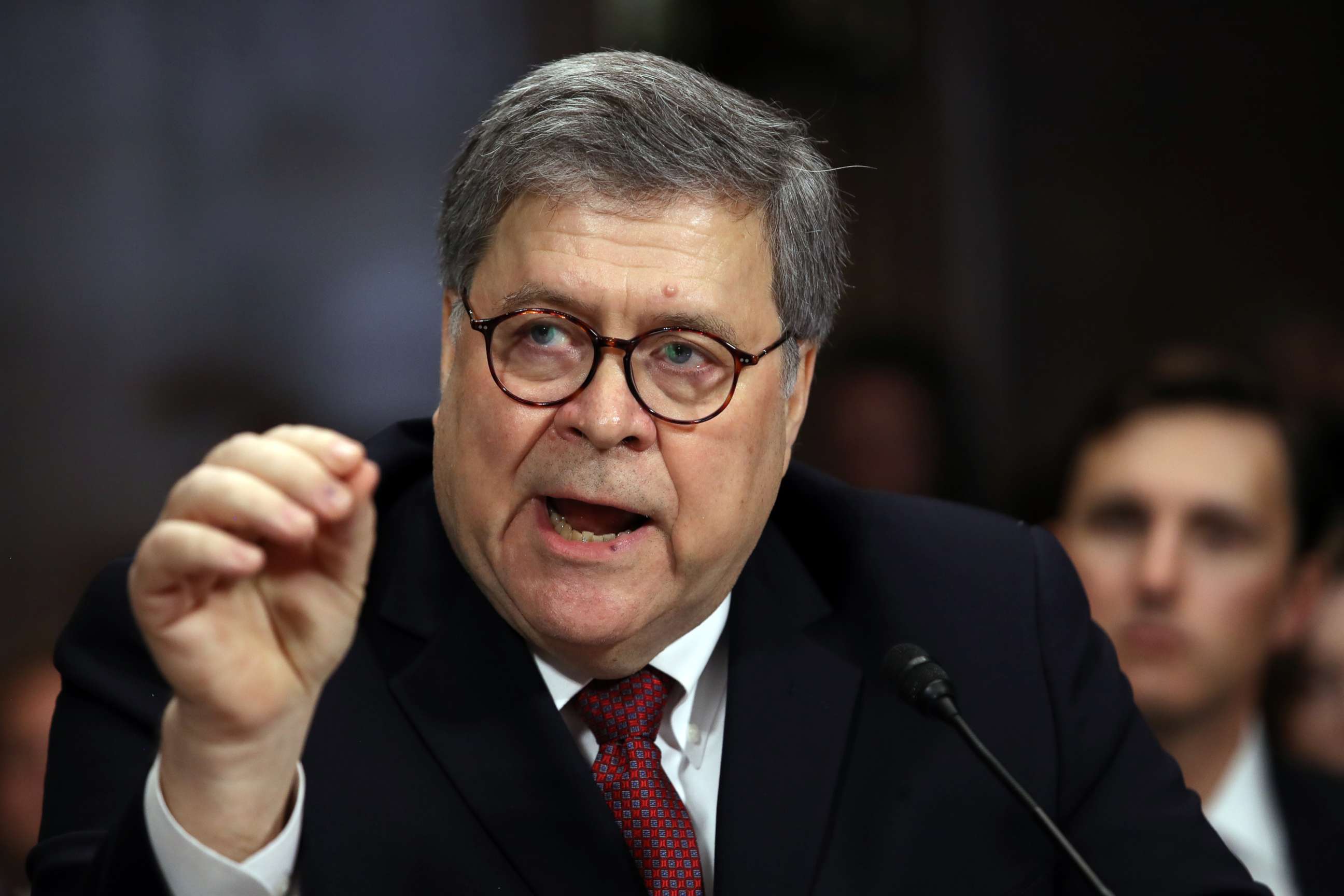
In a telling microcosm of Barr's attitude about the special counsel's report and President Trump's conduct, Barr said: "I'm not in the business of determining when lies are told to the American people. I'm in the business of determining whether a crime has be committed."
"The job of the Justice Department is now over, that determines whether or not there's a crime. The report is now in the hands of the American people. Everyone can decide for themselves, there's an election in 18 months, that's a very democratic process. We have to stop using the criminal justice system as a political weapon," Barr concluded.
1:12 p.m.: Klobuchar questions Barr on Trump's statements on witnesses "flipping" and possible obstruction
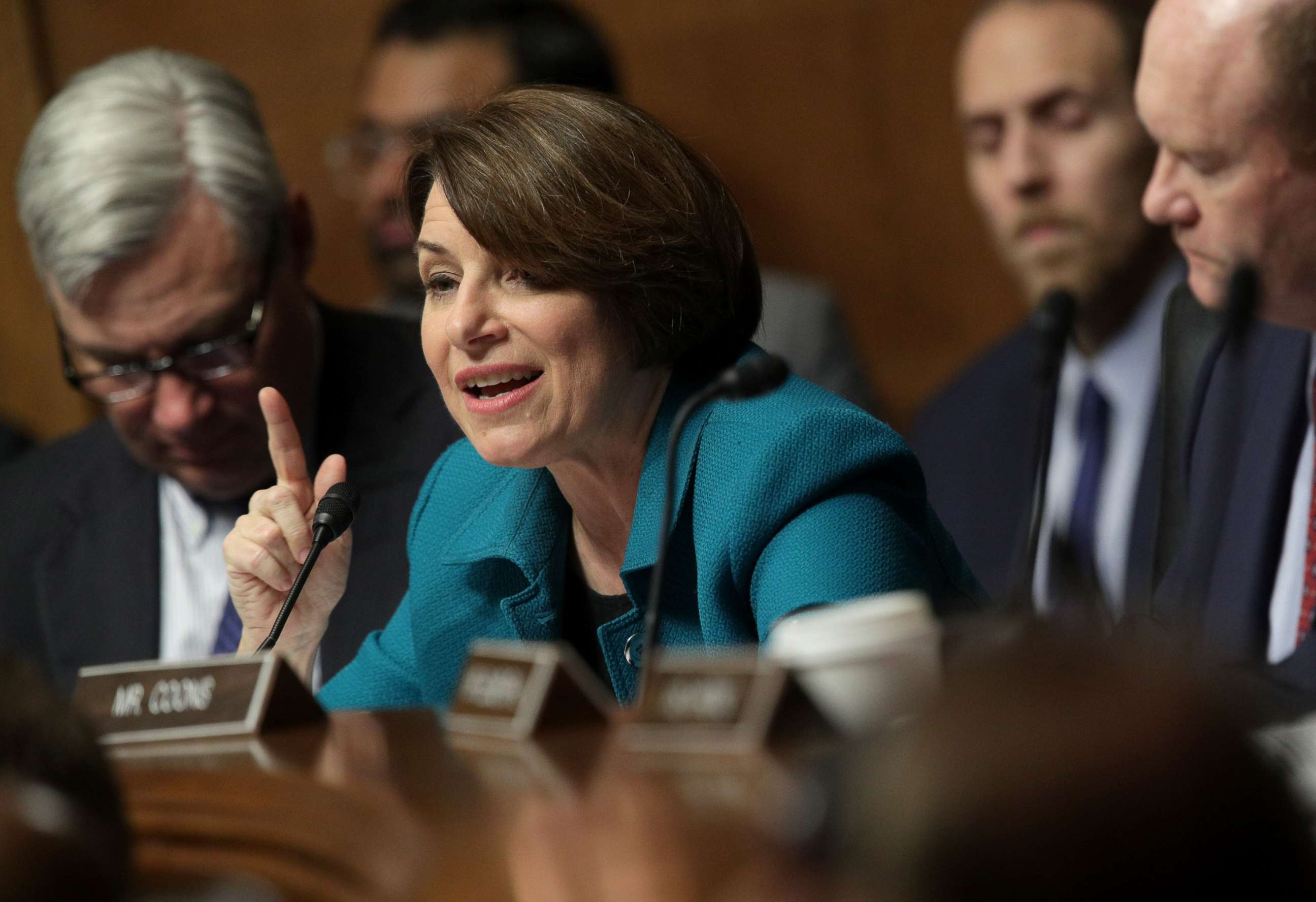
The first Democratic presidential hopeful to question Barr, Sen. Amy Klobuchar, D-Minn., spent the first few minutes of her allotted time advocating for Barr's support for election security legislation, but then pivoted to a debate over whether the "totality of the evidence" suggested President Donald Trump obstructed justice.
Klobuchar raised the president's praise of former Trump campaign chairman Paul Manafort for "refusing to break," as Klobuchar said.
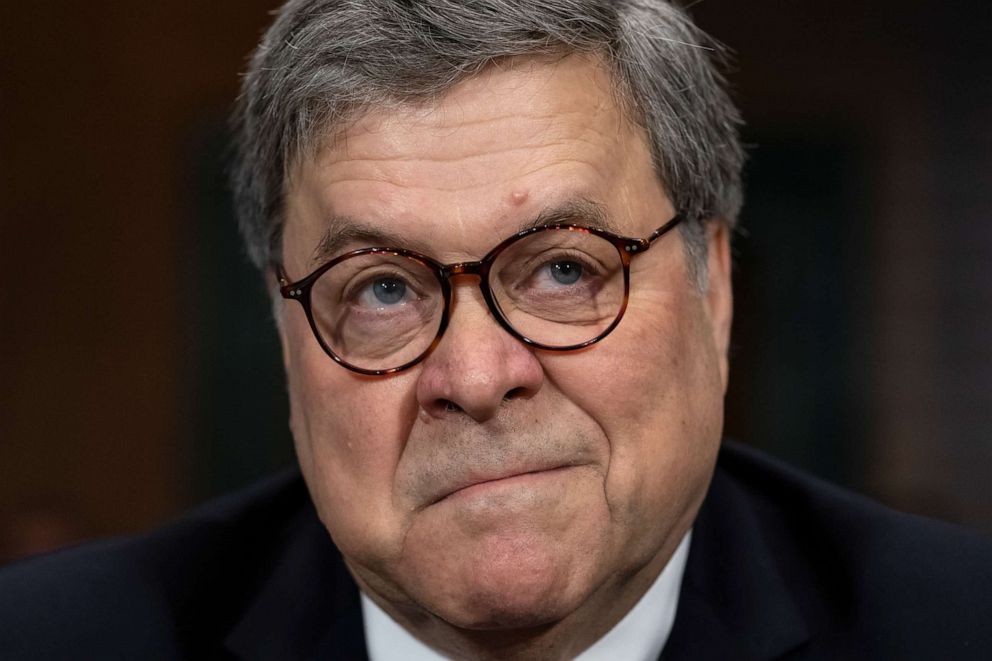
"I think what the president's lawyers would say, if this were ever actually joined, is that the president's statements about flipping are quite clear and express and uniformly the same," Barr said. "Which is by flipping, he meant succumbing to pressure on unrelated cases to lie and compose in order to get lenient treatment on the cases. That is not -- discouraging flipping in that sense is not obstruction."
Klobuchar argued: "You look at the totality of the evidence – that's what I learned when I was in law school."
1:01 p.m.: Barr says furor over Mueller letter to him is 'mind-bendingly bizarre'
The attorney general said furor over the special counsel's March 27 letter is a moot point – "mind-bendingly bizarre," as Barr put it – because the report was eventually released in its entirety, albeit lightly redacted.
"It was solved by putting out the whole report which was the -- that's why I think this whole thing is sort of mind-bendingly bizarre. I made clear from the beginning that I was putting out the report, as much of the report as I could, and it was clear it was going to take three weeks or so, maybe four, to do that," Barr said. "And the question is, what's the place holder, and the place holder in my judgment was the simple statement of what the bottom line conclusions were. And I wasn't going to be in the business of feeding out more and more information as time went on."
Democrats have accused Barr of "[shaping] the public's perception of the report," Rep. Adam Schiff, D-Calif., chairman of the House Oversight Committee, by penning a four-page letter describing the report's "principal conclusions" within 48 hours of receiving the special counsel's findings.
12:57 p.m. – Hearing resumes after senators break for votes
Senators have returned to their seats in the committee room after an hour-long break.
Among those who have yet to question the attorney general are three Democratic presidential hopefuls: Sen. Amy Klobuchar, D-Minn., Sen. Cory Booker, D-N.J., and Sen. Kamala Harris, D-Calif.
11:51 a.m.: Hearing breaks for Senate votes until 12:50 p.m.
After about two hours of questioning, the committee took a break so senators could vote.
11:28 a.m.: Barr says Mueller "told me he did not have objections to the accuracy" of the AG's four-page letter
Since news of Robert Mueller's March 27 letter to Barr became public late Tuesday, Democrats have suggested that Barr may have misled Congress when he testified that he did not know whether members of the special counsel's office were frustrated with his handling of the special counsel's report.
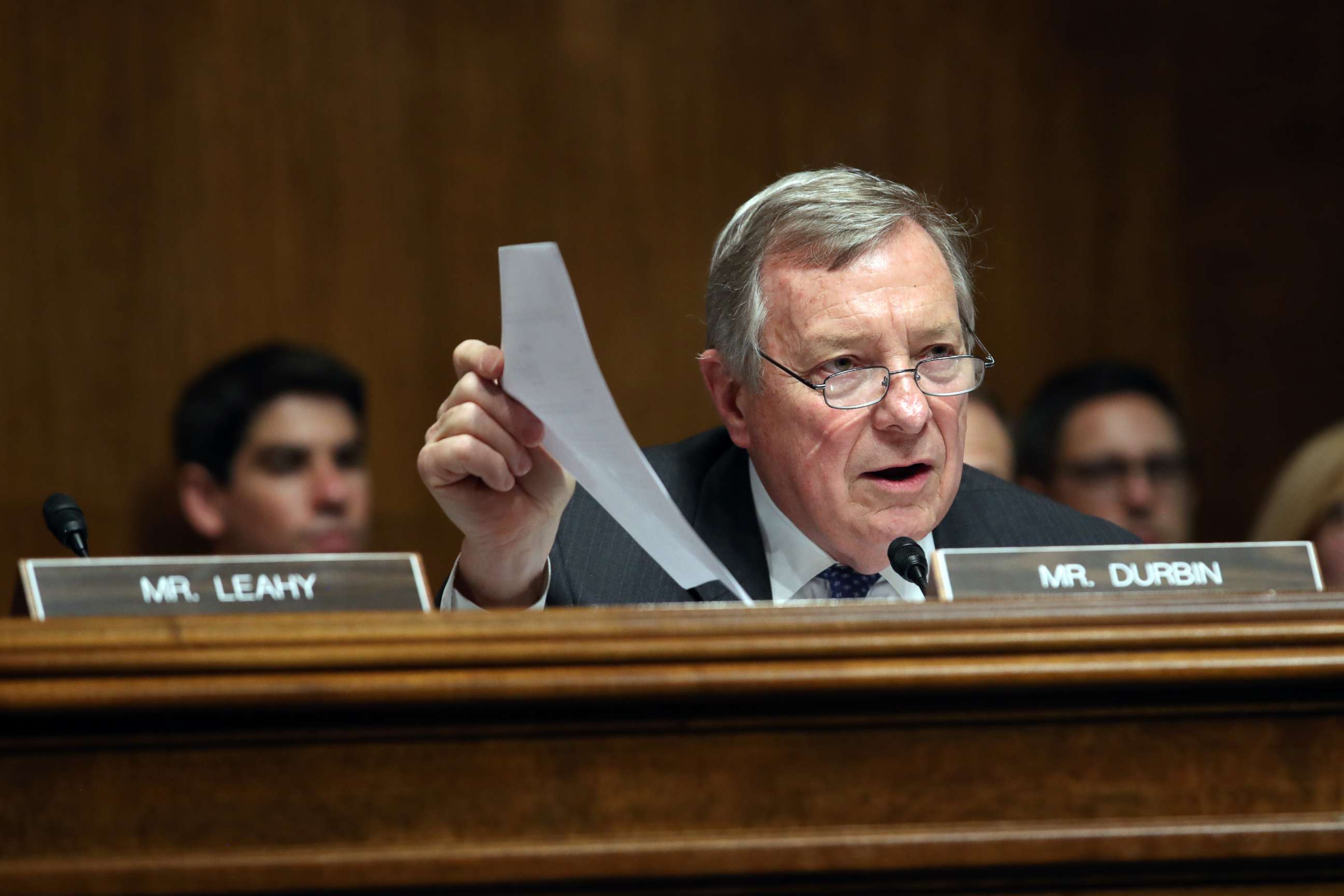
During his questioning, Sen. Dick Durbin, D-Ill., invoked comments Barr made to Rep. Charlie Crist, D-Fla., during a hearing before the House Appropriations Committee, in which Barr said he did not know whether members of the special counsel's office were "frustrated," but he "[suspected] that they probably wanted more put out."
Barr argued that Mueller did not appear frustrated with the accuracy of his four-page letter. "I talked directly to Bob and Bob told me he did not have objections to the accuracy," Barr said, "but that he wanted more out there to provide additional context to explain his reasoning on why he didn't reach a decision on obstruction."
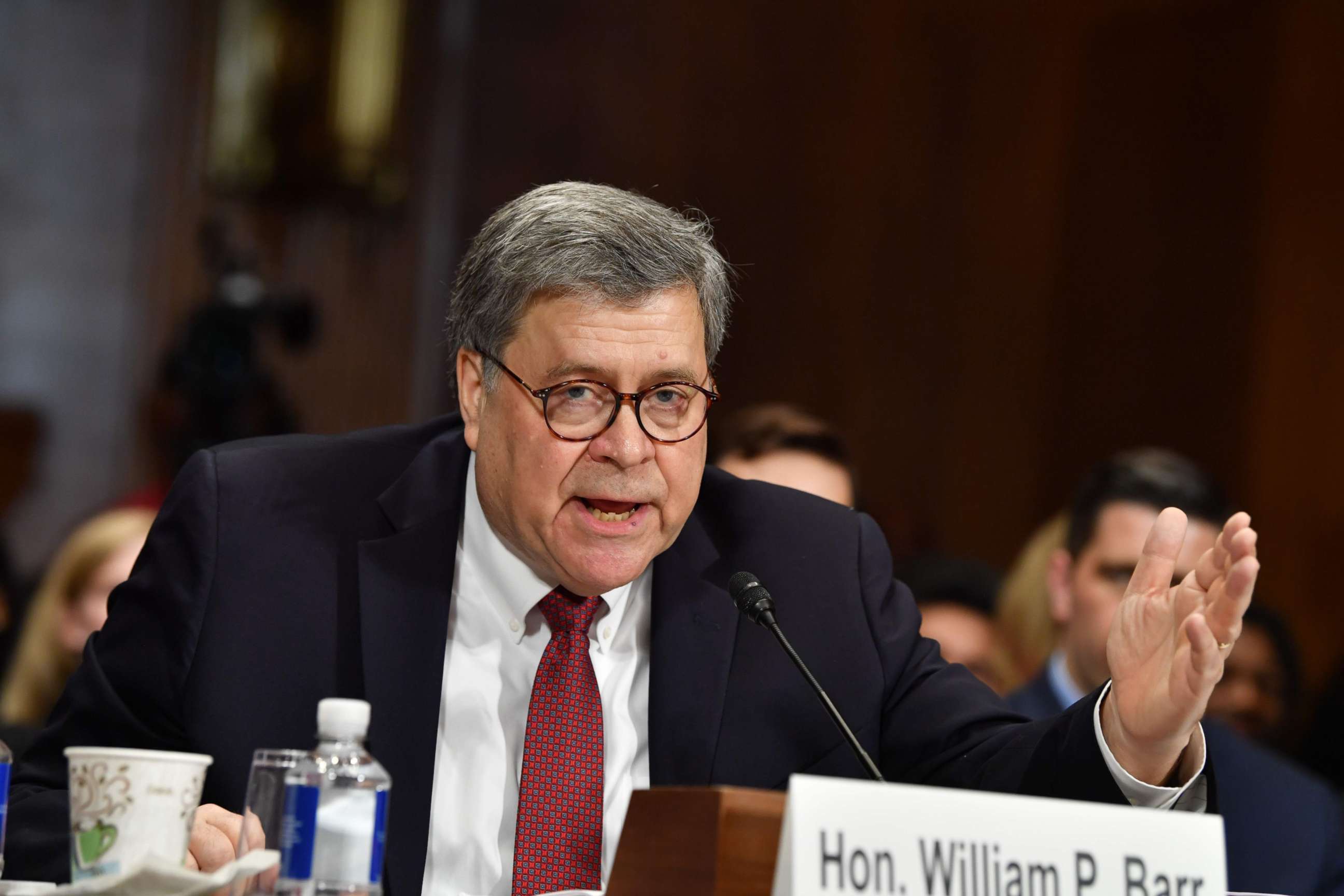
"You know, after a month's long trial, if I wanted to get out to the public what the verdict was, pending preparation of the full transcript – I'm out there saying here's the verdict and the prosecutor comes up and taps me on the shoulder and says the verdict doesn't fully capture all my work, how about that great cross-examination I did, or how about that third day of trial where I did that. This doesn't capture everything. I'm trying to state the verdict," Barr said.
Barr reiterated his stance that he has no objection for Mueller testifying before Congress but declined to say whether Don McGahn should appear before Congress.
"It's a call for the president to make," Barr said. "I assume he'd be testifying about privileged matters."
11:15 a.m.: Democrat Leahy grills Barr on his previous testimony
Democratic Sen. Patrick Leahy questioned Barr on what he's testified about whether he knew about concerns raised by Mueller and his team.
11:07 a.m.: Barr says Mueller shouldn't have investigated if he could not make a "prosecutive decision"
During questioning by Sen. Chuck Grassley, R-Iowa, Barr said he was "not really sure" of Mueller's reasoning for not making a decision about obstruction and "didn't try to put words in his mouth."
"I think that if he felt that he shouldn't go down the path of making a traditional prosecutive decision, then he shouldn't have investigated," Barr said.
10:58 a.m.: Barr says Trump telling McGahn to remove Mueller not obstruction
During questioning by Democratic Sen. Dianne Feinstein, Barr took issue with the public perception concering one of the Mueller report's most controversial revelations about possible obstruction of justice by President Donald Trump: when he appeared to order then White House Counsel Don McGahn to get Deputy Attortney General Rod Rosenstein to fire Mueller, according to the Mueller report. McGahn told Mueller Trump later claimed to him he didn't use the word "fire" but instead cited "conflicts and said Mueller "can't be special counsel," the report said.
"To be obstruction of justice, the lie has to be tied to impairing the evidence in a particular proceeding," Barr said. "And there is a distinction between saying to someone go fire him, go fire Mueller, and saying have him removed based on conflict. They have different results."
10:44 a.m.: Barr says he told Mueller he wasn't interested in putting out report summaries as Mueller wanted
Barr sought to defend his handling of the special counsel's findings in opening remarks and explain his rationale for the report's rollout.
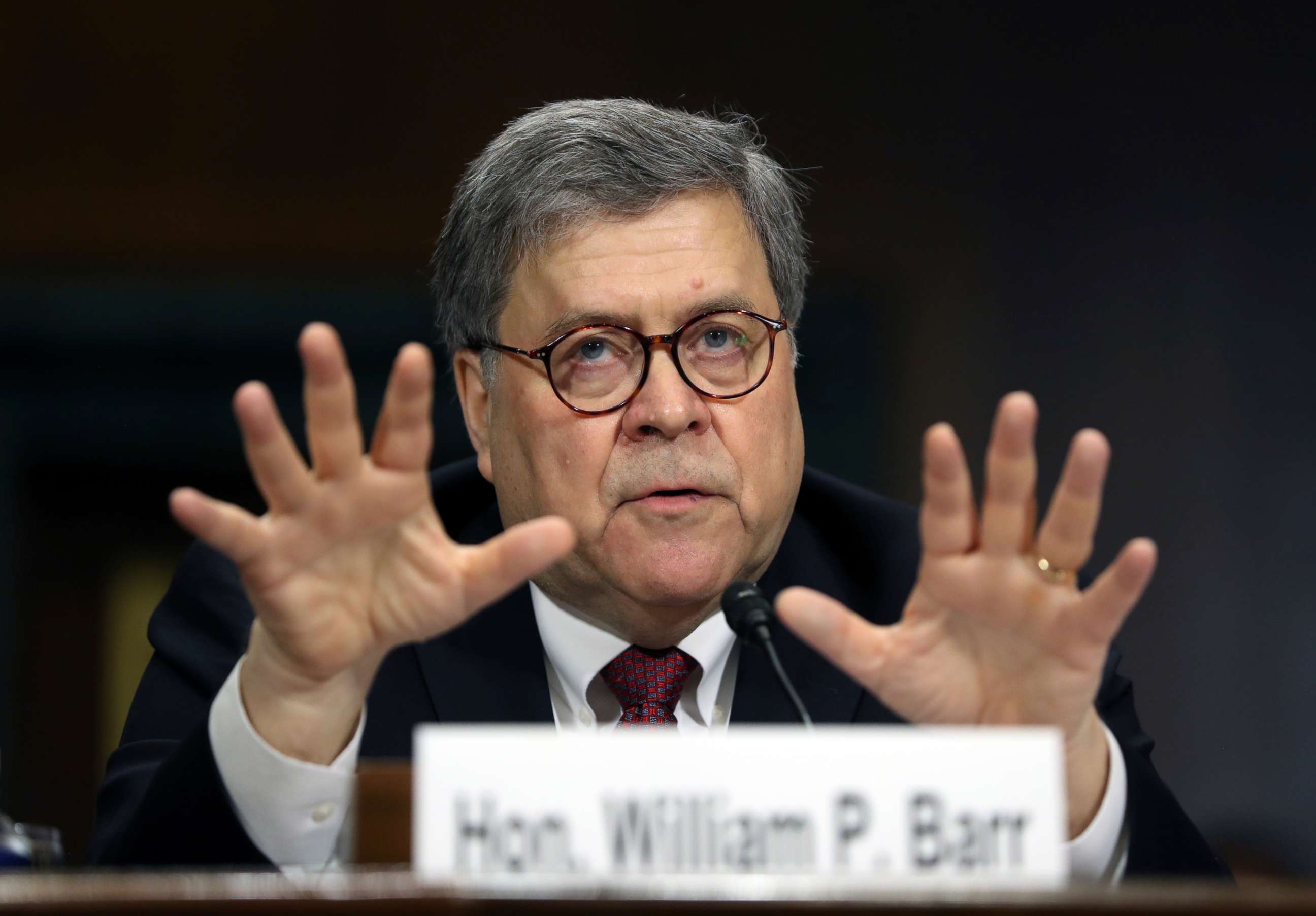
Barr deviated from his prepared statement to explain his interactions with Mueller and his calculus in denying the special counsel's request to release executive summaries.
"He wanted, he argued for putting out summaries of each volume. The executive summaries that had been written by his office. And if not that, then other material that focused on the issue of why he didn't reach the obstruction question. But he was very clear with me that he was not suggesting that we had misrepresented his report," Barr said.
"I wanted to get the whole report out," he continued. "And I thought summaries by very definition, regardless of who prepared them, would be underinclusive and we would have sort of a series of different debates and public discord over each information that went out and I wanted to get everything out at once and we should start working on that."
The attorney general said the "body politic was in a high state of agitation" and said there was speculation about whether the president or members of his family might be indicted.
Barr also said he was "surprised" that Mueller had not reached a conclusion on obstruction and expressed his frustration in a phone call with Mueller.
Barr says he called Mueller after the special counsel's March 27 letter, expressing frustration over Barr's characterization of the Mueller report: "He said that his concern focused on his explanation on why he did not reach a conclusion on obstruction" https://t.co/ZSrldyPiUz pic.twitter.com/ggXqqzcb25
— ABC News Politics (@ABCPolitics) May 1, 2019
In the first line of questioning, Sen. Graham peppered Barr with yes or no questions about the process of the special counsel's probe. Barr answered in the affirmative when asked whether he respects Mueller and whether her "feels good" about his decision to clear Trump on obstruction of justice.
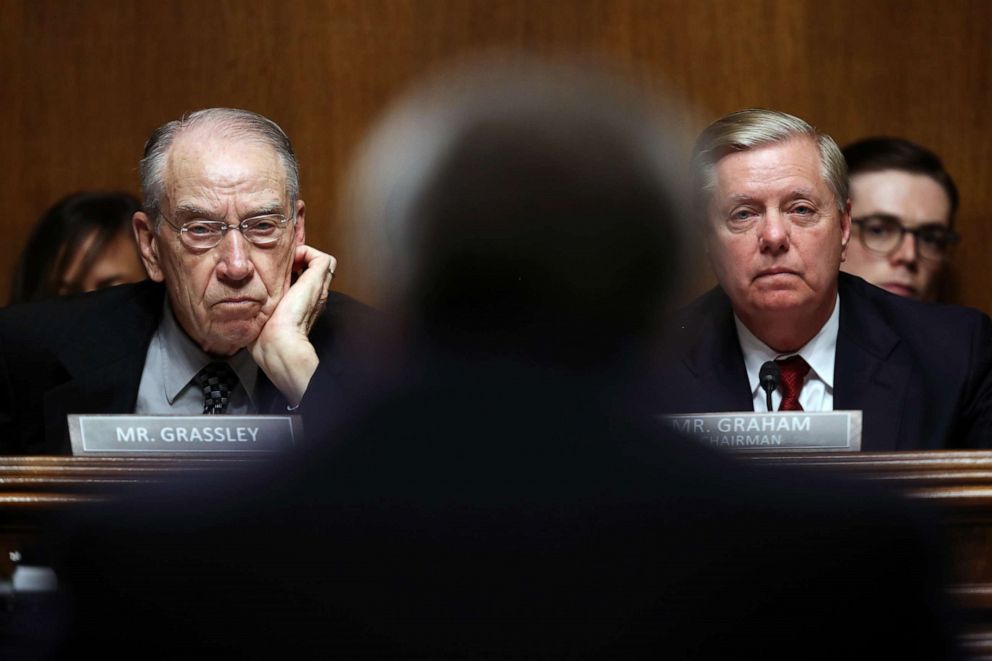
Trying to keep up with all of the page-flipping during the Barr hearing as lawmakers refer to pages in the Mueller report? Read the full version here.
10:27 a.m.: Feinstein says Congress needs to hear directly from Mueller
Sen. Dianne Feinstein, D-Calif., the ranking Democrat on the Judiciary Committe, set the tone for Democrats in her opening remarks, referring to special counsel Robert Mueller's letter to Barr made public in its entirety just moments before Wednesday's hearing commenced.
After ticking through Barr's rollout of the special counsel's findings, describing some of the report's accounts of contacts between the Trump campaign and Russians and recounting instances of possible obstruction of justice investigated by the special counsel's office, Feinstein said, "Congress has both the constitutional duty and the authority to investigate the serious findings contained in the Mueller report."
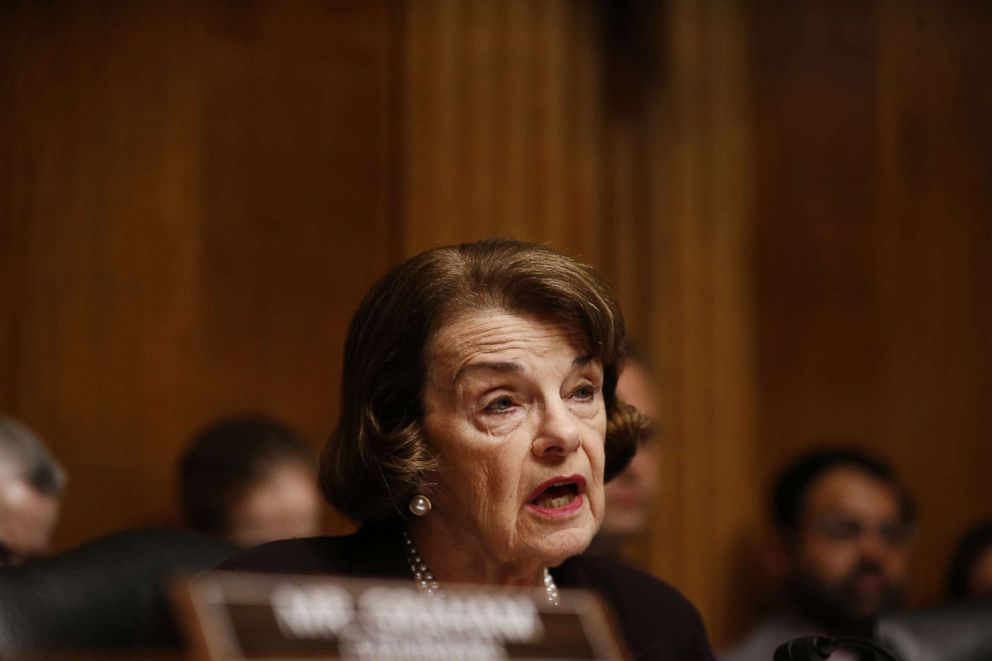
Feinstein noted some of the obstacles Mueller faced in conducting a thorough investigation.
"While the March letter to Congress and the April press conference left the impression there were no remaining questions to examine, this report notes several limitations Mueller faced while gathering the facts that Congress needed to examine. More than once, the report documents that legal opinions were not drawn because witnesses refused to answer questions or failed to recall the events," Feinstien said.
Feinstein concluded by calling Mueller to testify before Congress.
"I only believe that this committee needs to hear directly from special counsel Mueller about his views on the report in his March letter. I also believe senators should have the opportunity to ask him about these subjects in questions directly. I have requested this to our chairman to authorize a hearing with special counsel Mueller and I hope that will happen soon."
10:08 a.m.: Graham says nothing in unredacted Mueller report changes outcome
Here is the Mueller report," Sen. Lindsey Graham said in his opening statement, holding up a hefty paper copy. "You can read it for yourself. It's about 400 and something pages. Can't say I read it all, but I read most of it. There is an unredacted version over in the classified section of the Senate. A room where you can go look at the unredacted version and I did that and I found it not to change anything in terms of an outcome."
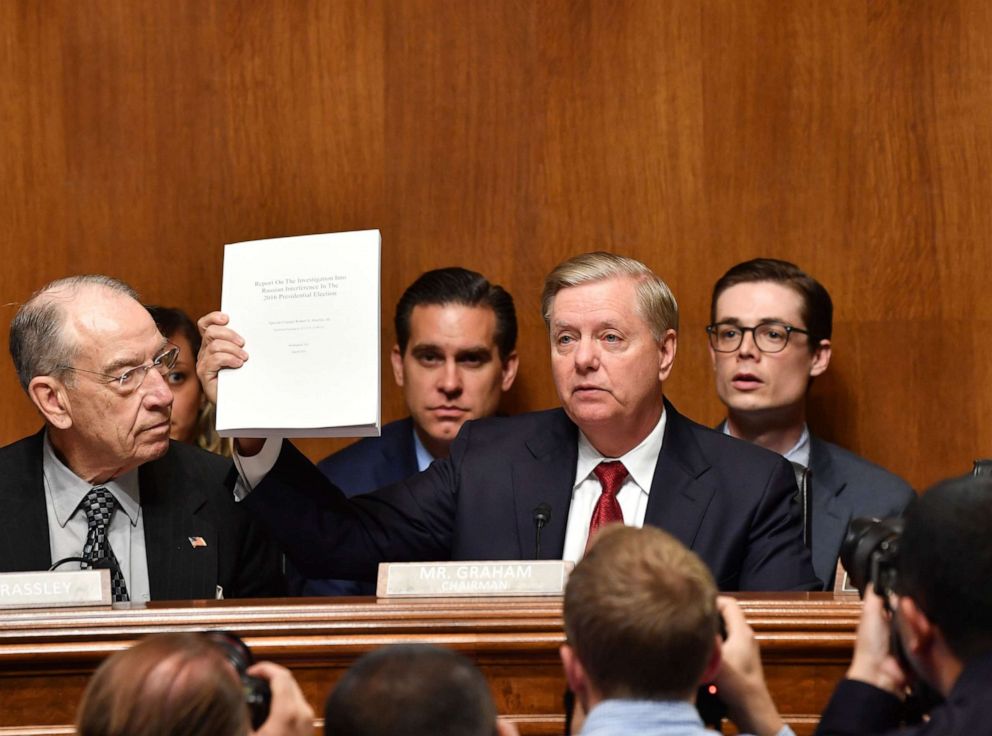
Graham spoke glowingly of special counsel Robert Mueller Mueller, praising him as "the right guy to do this job."
As Barr looked on, Graham urged members of the committee to "work to do to defend democracy against the Russians and other bad actors. And I promise the committee we will get on with that work hopefully in a bipartisan fashion."
Moments before the hearing got underway, the House Judiciary Committee received a copy of special counsel Robert Mueller's letter to attorney general William Barr, in which Mueller lamented "public confusion about critical aspects of the results of our investigation" and called on the Justice Department to release summaries prepared by the special counsel's office.
10:00 a.m.: Hearing commences
Sen. Lindsey Graham, R-S.C., the chairman of the Senate Judiciary Committee and one of the president's most reliable defenders in Congress, has gaveled in this morning's hearing.
Attorney General William Barr has arrived and taken his seat across the wood-paneled committee room from members eager to question the nation's top law enforcement officer.
In a letter dated March 27, Mueller complained that Barr's interpretation "did not fully capture the context, nature, and substance of this office's work and conclusions." A Justice Department spokeswoman said in a follow-up phone call, Mueller "emphasized that nothing in the Attorney General's March 24 letter was inaccurate or misleading."
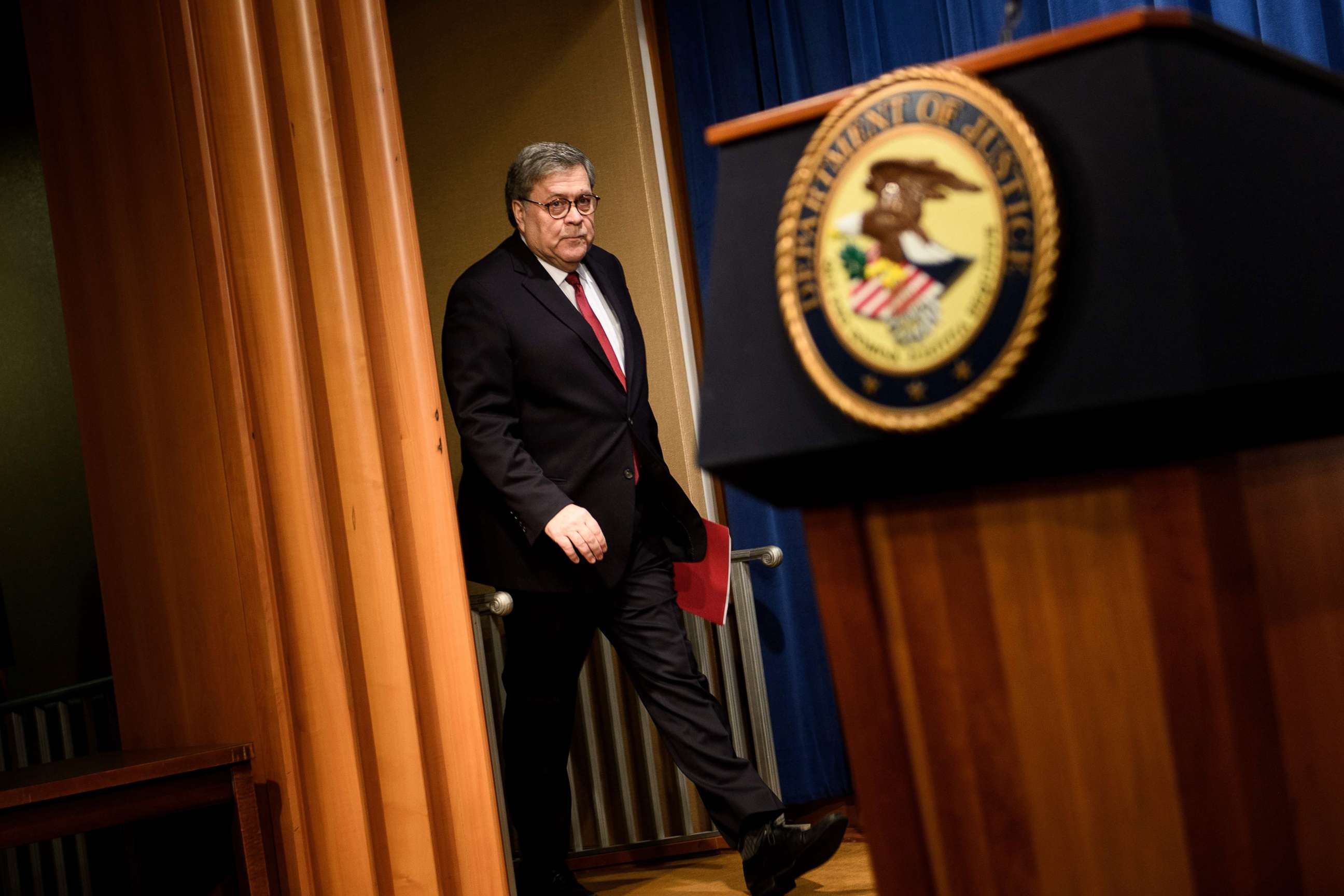
The revelation of Mueller's sentiment toward the Justice Department's rollout of his report has further stoked Democrats' concerns about the attorney general's impartiality. In the weeks since Barr made a redacted version of Mueller's 448-page report available to the public, congressional Democrats have criticized what House Speaker Nancy Pelosi and Senate Minority Leader Chuck Schumer called his "regrettably partisan handling of the Mueller report."
Democrats have accused Barr of "[shaping] the public's perception of the report," according to Rep. Adam Schiff, D-Calif., chairman of the House Oversight Committee, by issuing his short letter, then conducting a press conference framing the report's findings hours prior to its release.
At his press conference, Barr repeatedly claimed the special counsel found "no collusion," but Mueller states clearly in his report that "collusion is not a specific offense or theory of liability found in the U.S. Code."
Barr's initial communique conveyed that Mueller's team found no evidence to suggest members of the Trump campaign "conspired or coordinated" with Russians to influence the election and reached no conclusion on the matter of possible obstruction of justice by President Donald Trump.
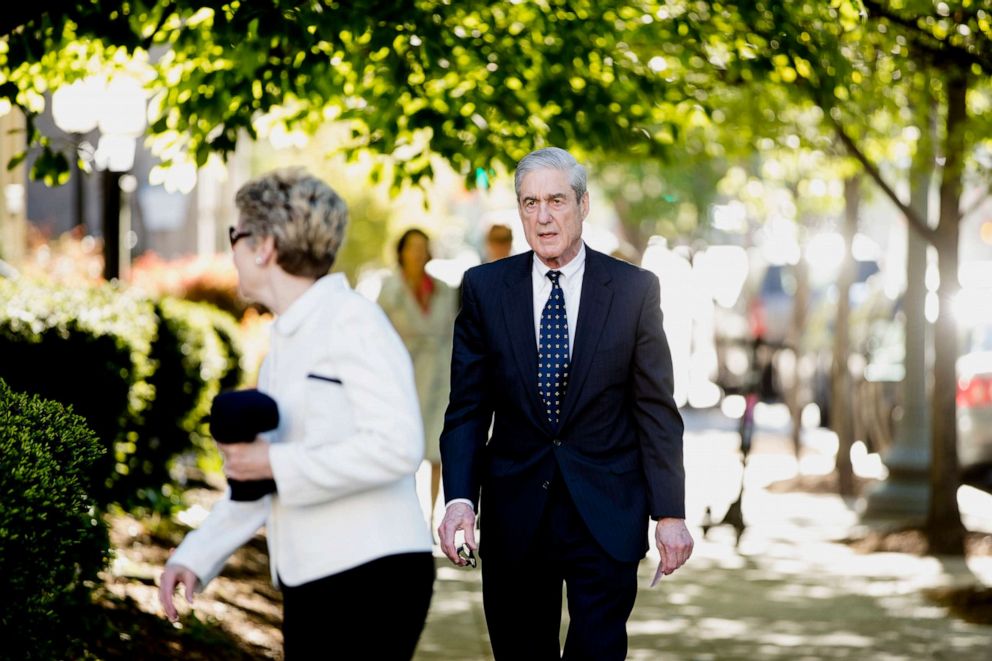
But Barr's letter omitted several key details -- many of which painted the president in an unflattering light -- ultimately revealed three weeks later when the redacted report came to light, including 11 instances of possible obstruction investigated by Mueller and scores of contacts between members of the Trump campaign and Russians.
Furthermore, the special counsel wrote that it "faced practical limits on its ability to access relevant evidence" as some individuals interviewed "sometimes provided information that was false or incomplete."
Wednesday's hearing before the Senate Judiciary Committee previews a potential showdown in the Democrat-controlled House Judiciary Committee scheduled to take place on Thursday. The Justice Department has objected to the House panel's proposed format for the hearing and suggested that Barr may not show up, prompting Democrats to threaten a subpoena for his testimony.
